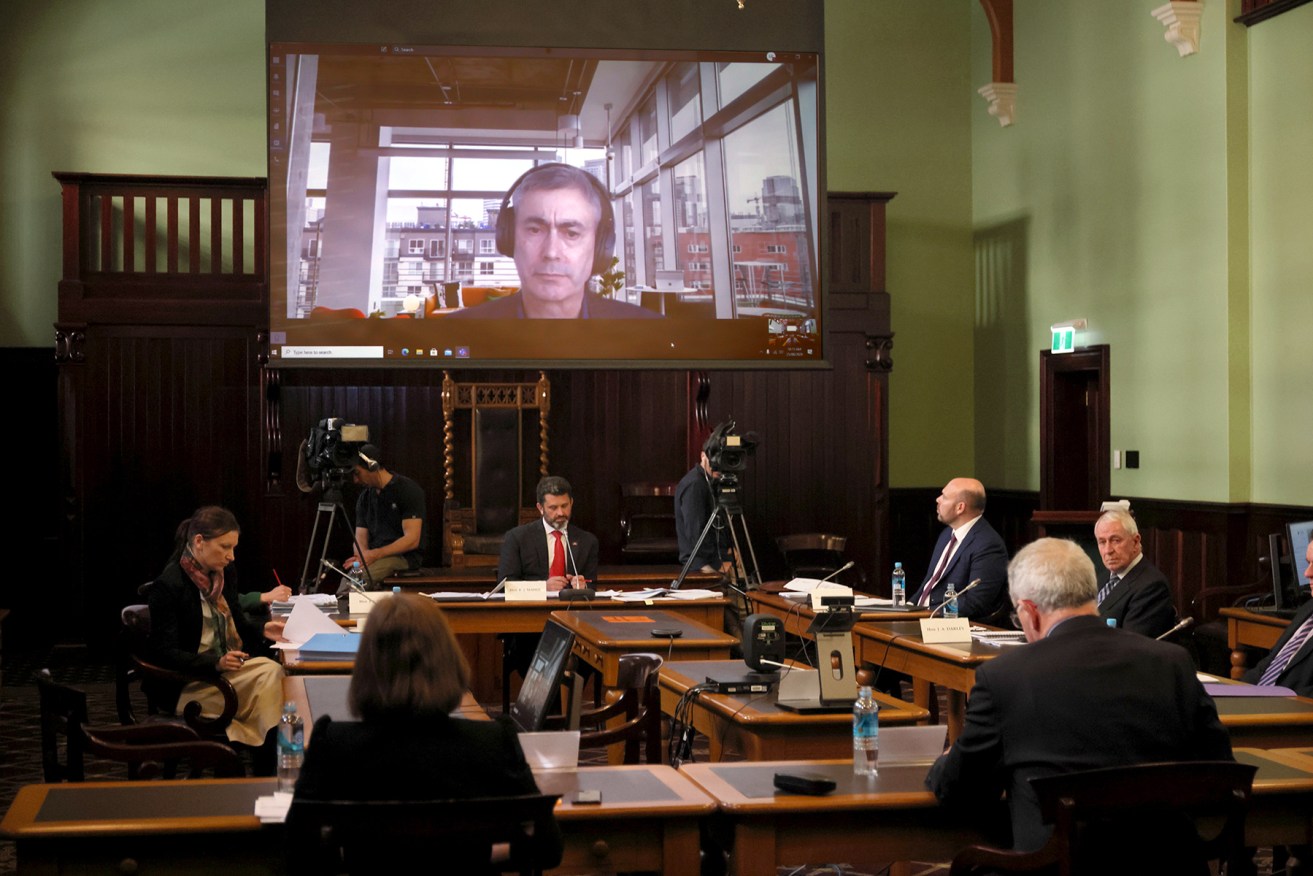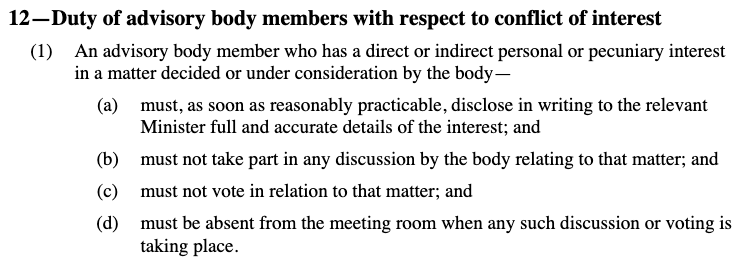Would a $1.4 million State Govt consultancy make you ‘interested’?
South Australia’s legislation governing public sector accountability and honesty appears straightforward in its definition of a conflict of interest – but a major department and a cabinet minister are insisting there is nothing to see here. David Washington explains.


Fergus Gammie (on screen) giving evidence to Parliament's Budget and Finance Committee from Sydney. Photo: Tony Lewis/InDaily
When is an “interest” not an “interest”?
If you were given more than $1.4 million to deliver a government project, how “interested” would you be?
This is the question at the heart of yet another governance issue that has arisen in the state public sector.
In June 2019, Sydney-based transport consultant Fergus Gammie, it was revealed this week, was given a $1.467 million contract to deliver the SA Government’s project to outsource the management of public transport trains.
Just a few weeks later, he was also appointed to the board of the SA Public Transport Authority – a body that the State Government says is independent and designed to provide “frank and fearless advice” on how to increase public transport patronage.
While the public focus has been on Gammie’s past professional relationship with department chief Tony Braxton-Smith, and the fact that the fat contract was awarded without a tender, there seems to be another potential problem for Gammie and the Government: the requirements of the Public Sector (Honesty and Accountability) Act.
The Act – as well as public sector guidelines published by the Department of the Premier and Cabinet – make it very clear that members of advisory boards can’t participate in decision-making if they have an interest in the matter at hand.
Gammie, it is now clear, has been freely participating in SAPTA discussions without declaring any conflicts of interest.
New transport minister Corey Wingard doesn’t see an issue, and the transport department is even more bullish – admitting that Gammie most likely has discussed his rail project at the SAPTA board, but so what?
Here’s what the Act says:

And here are the relevant parts of the department’s responses to InDaily’s questions about whether a conflict exists:
Mr Gammie has not declared a conflict of interest because none has arisen.
On 27 June 2019, Mr Gammie was one of four experts appointed to the South Australian Public Transport Advisory Board (SAPTA). Mr Gammie remains on the SAPTA board and has not received payment for his role on the board.
The role of Project Director for the Adelaide Rail Transformation program is separate to the role as a SAPTA board member, and Mr Gammie is more than qualified to undertake both.
The SAPTA Advisory Board is, as its name says, an advisory board. It is not a decision making body and not one that carries any fiduciary duties.
The SAPTA Advisory Board plays no role in the procurement program. Accordingly Mr Gammie is not conflicted.
The role of the SAPTA Advisory Board is to discuss Government policy. As the outsourcing of rail services is a Government policy, the matter may be discussed at SAPTA Advisory Board meetings.
Wingard was selling a similar story, with a spokesperson telling InDaily:
“The appointment of staff is a matter for the Chief Executive of the Department.
“SAPTA is not a decision-making body and the Department has advised that no conflict of interest has arisen regarding Mr Gammie’s appointment.”
These responses seem predicated on the view that Gammie can’t be conflicted because the SAPTA board isn’t involved in procurement decisions.
But the Act, as we’ve seen, is talking about a board member having a “pecuniary interest” in any matter being discussed.
The Government’s advice for board members – including members of advisory boards – also appears clear:
If you or an associate has an interest in a matter being considered by your board, you must leave the room when that matter is being discussed or voted on, and cannot take part in any discussion or voting. You must also provide, in writing, full and accurate details of your interest. If you are an advisory body member, your disclosure needs to be sent to your minister; corporate agency members must send their disclosure to the board itself.
The other curious aspect of the timeline of this case is that the State Government did not reveal Gammie’s contract in June last year, when then minister Stephan Knoll was selling the credentials of the first SAPTA board.
Knoll mentioned Gammie’s time as chief executive of the New Zealand Transport Agency, and his “senior public sector roles in Public Transport Infrastructure and Service delivery in Sydney and Auckland”.
No mention of the local angle.
So what we’re left with is this: one of the just four members of the board that is meant to provide independent advice to the State Government about the shape of the public transport system is also receiving more than a million dollars in consultancy payments to manage a project to reshape a key part of the public transport system.
And he’s participating in those discussions, including those that potentially affect the shape and future of his contracted position.
If we accept Gammie’s position as a consultant and freely-participating advisory board member is permissible under the Act, should it be?
I’m not suggesting Gammie has used his advisory board position to obtain any actual personal advantage, but good governance is about being fastidious about potential conflicts, including perceptions of conflict.
Even setting aside the Government’s guidelines and the legislation, the “pub test” in cases like this is a reasonable and fair guide to safeguarding community confidence in the public sector.
Otherwise, we’re left with what looks like a bureaucratic version of an M.C. Escher drawing.
David Washington is editor of InDaily.




